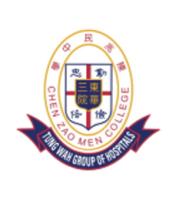| Language Policy |
The school strives to enhance students’ bi-literate and trilingual abilities. We adopt small-class teaching in English lessons and allocate extra resources to language teaching so as to create an English-rich campus. <br>To ensure a continuity in the use of English as the medium of instruction, subjects offered in English in Junior Secondary (JS) are still available in English in Senior Secondary (SS). |
| Learning and Teaching Strategies |
We provide an all-round education and encourage multifarious instructional strategies with the use of I.T. to stimulate students and to develop their critical thinking. Cross-curriculum programs such as the Junior Secondary School-based Curriculum, the Reading Scheme and the School Life Education Scheme and the CORE Day echo the themes of the education reform to nurture students' generic skills and to build for them a foundation for life-wide learning. Our School-based Junior Secondary Curriculum is formulated with the co-ordinated efforts of different subjects to develop the generic skills of S.1-3 students systematically. |
| School-based curriculum |
1. Electives: 3X. There are 138 combinations of elective subjects for senior form students. We provide two extra subjects, Music and Life Planning, to S.4 students to cater for their diverse learning and development needs.<br> 2. Curriculum highlights: S.1-3 School-based Curriculum: We cultivate self-learning skill among students from the beginning of S.1. In S.3, we integrate the Youth Development Program of the Health Department to develop students' self-management and communication skills. In S.2, students have to work on a project under teachers' supervision to promote self-directed learning and problem-solving skills. Students' critical thinking skills are enhanced through practice in debate and writing in language subjects. Besides, we also provide My May and TWGHs Moral Education Course so that students positive value can be cultivated. We also apply e-Learning in various subjects in different levels for raising their self-learning ability. |
| Approach to Catering for Learner Diversity |
Students in need of special assistance are given professional assessment and meetings are called for teachers to adjust teaching and evaluation arrangements. Gifted students are selected by teachers in charge of different key learning areas to participate in enhancement programs and inter-school contests to fully develop their potentials. |
| Approach to Integrated Education |
Our school has set up the Student Learning Support Committee. Committee members include the SENCO, representatives from the Chinese Department and English Department, SENST, School Social Workers, Education Psychologist, Counselling Psychologist and teacher assistants. The school makes use of Learning Support Grant to provide various services to SEN students, including counselling services, speech therapy, clinical psychology, emotional support, social skills groups, etc. We promote inclusiveness on the campus to support SEN students.<br>To enhance the professional capacity of teachers in catering for students with SEN, our school arranges teachers to attend Basic, Advance and Thematic (BAT) courses systematically according to the professional development framework on integrated education. Members of Student Learning Support Committee attend different professional interflow activities, meet teachers from different schools, learn updated information and share it with colleagues in order to enhance the professional capacity of our teaching staff to serve SEN students.<br>The school also collaborates with parents of SEN students closely. We organize parenting activities, workshop and counselling sessions. We also maintain a close relationship with parents and let them understand that the school provides professional support to develop the potentials of SEN students.<br> |
| Education Support for Non-Chinese Speaking (NCS) Students |
|
| Home-School Co-operation |
Our school actively promotes parent-school collaboration. The Parent-Teacher Association (PTA) organizes annual talk, parent workshops, parent-child trips, Lunar New Year gatherings and other activities. Parent volunteers frequently assist the school in organizing events and there is a volunteer contact group for dissemination of school information. |
| School Ethos |
We have cultivated a harmonious culture by promoting the motto, "Care, Open, Respect and Endeavour" among every member of the school. A close and trusting partnership is established among teachers, students and parents. Various counselling programs, dual class teachers in junior form, peer supporting schemes, leadership training and various life-wide learning functions match the developmental needs of students. |
| School Development Plan |
1. Continue to promote e-learning and strengthen STEM education.<br>2. Strengthen values education and nurture students to become responsible and respectful citizens.<br>3. Enhance teacher training and implement the Professional Ladder for Teachers. |
| Teacher Professional Training and Development |
The School and Staff Development Team arrange teachers to participate in school-based and external professional development functions including seminars, workshops and sharing. Self-evaluation is conducted periodically with the use of questionnaires. |
| Life-wide Learning |
The school offers over 40 student clubs and service groups for students to choose from. Each junior form student is required to participate in at least one core extracurricular activity for two years. In addition, diverse activities such as exhibitions, competitions, and performances are organized based on the needs of different subjects. Annual events include sports day, singing competition, school picnic, visits, cultural and art guided tours etc. Interdisciplinary activities are arranged according to students' needs. |
